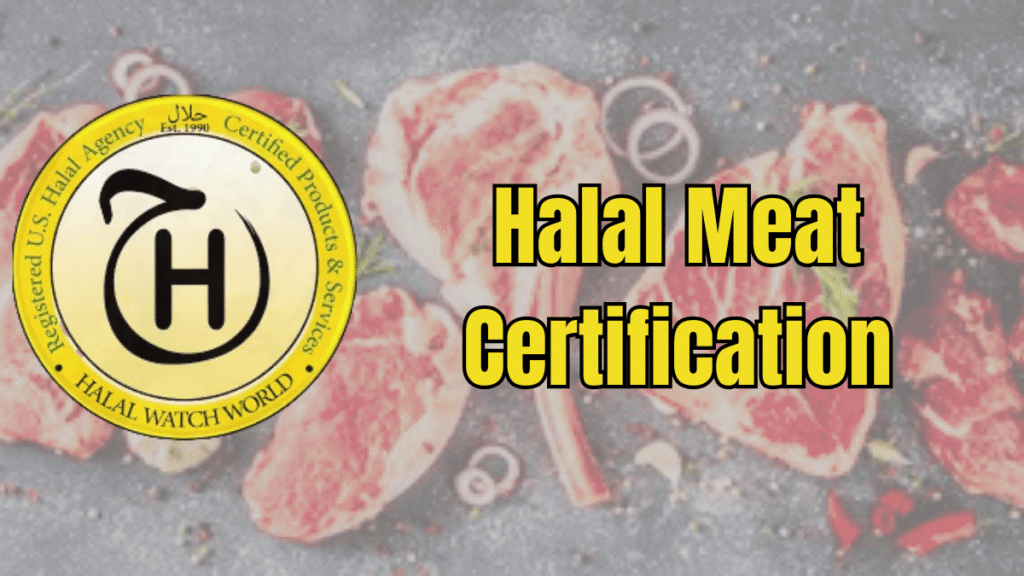Halal Certification for Meat represents a critical religious and commercial standard that ensures meat products comply with Islamic dietary laws. This certification process involves rigorous inspection, documentation, and ongoing monitoring to guarantee that meat products meet specific religious requirements from farm to table. The certification serves as a bridge between producers and Muslim consumers worldwide, providing assurance that products align with their faith-based dietary needs.
Core Requirements for Obtaining Halal Meat Certification
The halal meat certification requirements encompass multiple aspects of meat production, processing, and distribution. These requirements begin with the selection of permissible animals, which must be healthy and free from disease. Cattle, sheep, goats, and poultry are among the acceptable animals, while pork and carnivorous animals are strictly prohibited.
The slaughter process forms the cornerstone of halal compliance. A trained Muslim slaughterer must perform the procedure while invoking the name of Allah. The animal must be alive at the time of slaughter, and a sharp knife must be used to make a swift, deep incision that cuts the windpipe, esophagus, and jugular veins while leaving the spinal cord intact. This method ensures rapid blood drainage, which is essential for halal compliance.
Processing facilities must maintain strict segregation between halal and non-halal products. Equipment, storage areas, and transportation vehicles dedicated to halal products cannot come into contact with prohibited substances. Regular cleaning and sanitization protocols must be implemented to prevent cross-contamination.
Key Factors That Determine Halal Certification
Understanding what makes meat halal certified requires examining several interconnected factors. The animal’s diet plays a crucial role, as it must consume only halal feed free from animal by-products, blood, or other prohibited ingredients. The animal’s welfare throughout its life also matters, with proper housing, humane treatment, and adequate veterinary care being essential components.
The certification process extends beyond slaughter to include packaging and labeling. All ingredients used in processing, including preservatives, seasonings, and packaging materials, must be halal-compliant. Traceability systems must track products from farm to consumer, ensuring the integrity of the halal supply chain remains intact.
Documentation forms another vital element. Detailed records of suppliers, slaughter dates, processing methods, and distribution channels must be maintained. These documents enable auditors to verify compliance and provide transparency for consumers and regulatory authorities.
International Export Opportunities and Services
Companies seeking halal certification services for meat export must partner with recognized certification bodies that have international credibility. These services include facility audits, staff training, documentation review, and ongoing compliance monitoring. Export certification requires understanding destination country requirements, as different nations may have varying standards and recognition agreements.
The global halal meat market continues expanding, with major importers including Malaysia, Indonesia, Saudi Arabia, and the United Arab Emirates. Each market has specific import regulations and preferred certification bodies. Exporters must ensure their chosen certification agency has recognition in target markets to facilitate smooth trade operations.
The American Halal Certification Framework
Halal certification in USA operates through multiple independent organizations, each with its own standards and procedures. Unlike some countries with centralized halal authorities, the American system relies on private certification bodies that compete for market recognition. Major certifiers include established organizations that have built trust with both domestic and international Muslim communities.
American meat producers pursuing halal certification must comply with both USDA regulations and halal requirements. This dual compliance ensures food safety while meeting religious standards. The integration of these systems has made American halal meat products increasingly competitive in global markets.
Selecting the Right Certification Partner
Choosing an appropriate Halal Certification Agency requires careful evaluation of several factors. The agency’s reputation, international recognition, and technical expertise directly impact market access and consumer acceptance. Producers should verify that prospective agencies maintain accreditation from relevant Islamic organizations and have experience in their specific product categories.
Cost considerations include initial certification fees, annual renewals, and audit expenses. However, the lowest-cost option may not provide the best value if it lacks recognition in key markets. Agencies should offer comprehensive support, including staff training, documentation templates, and guidance on maintaining compliance.
Working with Professional Certification Companies
A reliable halal certification company provides more than just certificates. These organizations offer consultancy services to help businesses establish halal production systems, train personnel in Islamic dietary laws, and develop quality management procedures. They conduct regular audits to ensure ongoing compliance and provide updates on changing regulations and market requirements.
The certification process typically begins with an initial assessment to identify gaps in current practices. The company then develops an implementation plan, assists with necessary modifications, and conducts final verification before issuing certification. Ongoing support includes periodic audits, renewal processing, and assistance with customer inquiries about halal status.
Market Benefits and Business Growth
Halal certification opens access to a global Muslim population exceeding 1.8 billion people. This demographic represents significant purchasing power and continues growing rapidly. Certified products can command premium prices in many markets, offsetting certification costs and generating improved profit margins.
Beyond Muslim consumers, halal certification appeals to other groups seeking ethical and quality food products. The stringent requirements for animal welfare, cleanliness, and traceability resonate with health-conscious and environmentally aware consumers.
Organizations like Halal Watch World work diligently to maintain industry standards and provide valuable resources for businesses pursuing certification. Their expertise helps companies successfully implement halal protocols while maintaining operational efficiency.
Conclusion
Halal meat certification represents both a religious obligation and a strategic business opportunity. Success requires understanding complex requirements, selecting appropriate certification partners, and maintaining rigorous compliance standards. As global demand for halal products continues rising, producers who invest in proper certification position themselves for sustained growth in this expanding market segment.
Read more exciting blogs on postscontent.com



